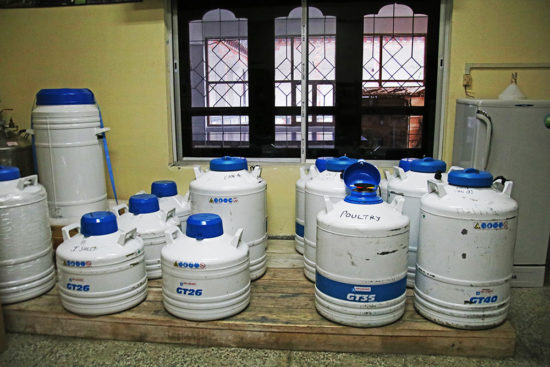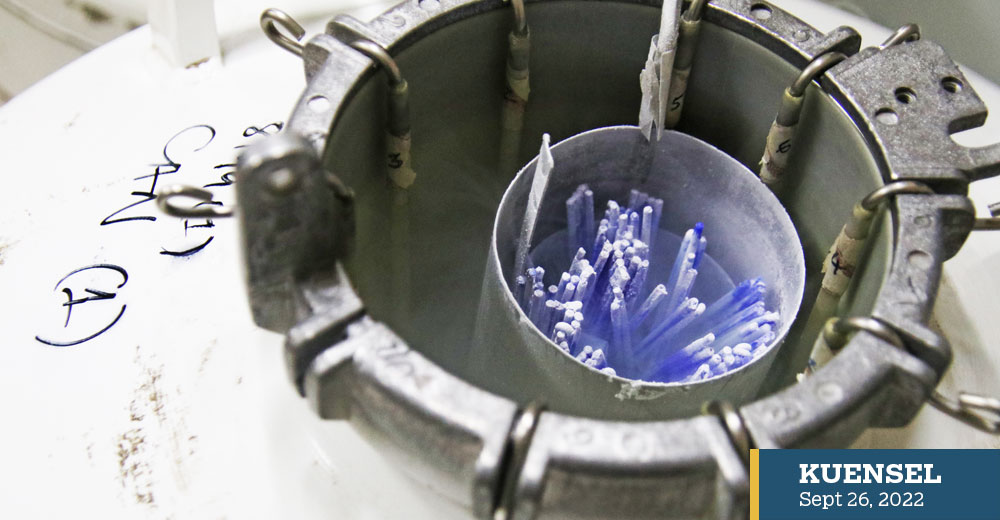Chhimi Dema
There are hundreds of vacuum-packed silver packets and test tubes lodged in deep freezers, all containing tiny gems of the country’s agricultural resource–seeds.
The plant gene bank in the National Biodiversity Centre (NBC) at Serbithang has preserved the country’s agricultural history in seeds, and the animal gene banks have been stored in semen and embryos.
The plant gene banks contain over 3,207 accessions of crop genetic resources comprising cereals, legumes, oilseeds, vegetables, and a few forages collected from all agroecological zones.
It was established in 2005 adhering to international standard protocols which were further validated through technical assistance from Food and Agriculture Organisation in 2013.
The safety duplicate facility of the gene bank is at the Agriculture Research and Development Centre in Wengkar, Mongar which holds 2,500 accessions of duplicate samples to mitigate the risk of loss of gene bank collections to natural or man-made catastrophes in the gene bank at Serbithang.
The seeds are stored at -20 degree Celsius in the freezers. Backup powers and generator are connected to the gene bank in case of power failure.
The seeds undergo various processes before they are vacuum-sealed and put in the gene bank.
NBC’s biodiversity supervisor, Ugyen Phuntsho, said that the gene banks preserve the seeds before they become extinct and provide opportunities to carry out research in future. “Traditional varieties of crops have cultural significance and they pose good traits such as having insect repellent or aromatic traits,” he said.
Officials from NBC collect more than 100 accessions of different crop varieties from diverse parts of the country yearly. Similar crop varieties which are grown in different places are collected as well.
NBC also distribute seeds to researchers and farmers from the gene bank’s active or short-term shortages.
The seeds in the gene bank can survive up to 100 years.
Animal gene bank

Animal gene bank has 22,739 semen of 22 native animal breeds and poultry
The animal gene bank has 22,739 semen of 22 native animal breeds and poultry. It also has more than 1,600 DNA (Deoxyribonucleic Acid) of different native livestock breeds.
Sixty percent of the gene is from native sheep breeds which are disappearing fast.
The animal gene bank was established in 2005 with basic laboratory facilities and was upgraded to a functional unit in 2007.
In 2011, the gene bank protocol and procedure were validated according to international standards through FAO assistance.
Senior Biodiversity Officer at NBC, Tshering Dorji, said that starting 2007, the centre has been focusing on capturing maximum diverse genetic resources.
“The animal breeds in the gene bank are very unique to Bhutan and it is found nowhere else. They are unexplored genes which we have only limited knowledge about,” he said.
Tshering Dorji said, “The gene bank is important because it holds indigenous and unique breeds of animals which cannot be found anywhere else in the world.”
He said that the repository in the gene banks can revive the animal breed that the country lost.
The lack of budget in the centre will severely impact the field research, sources say.


